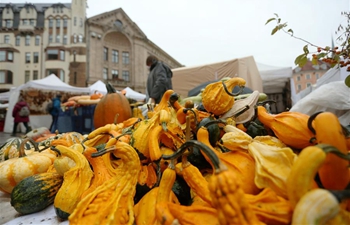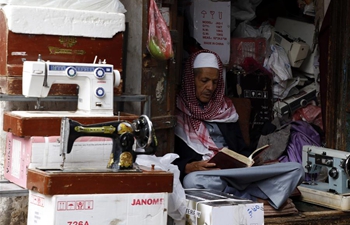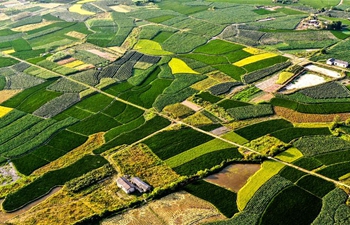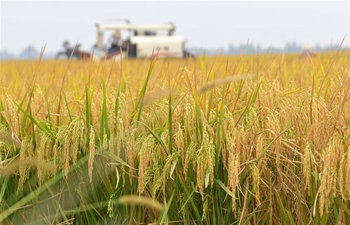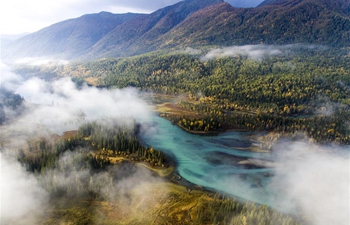ATHENS, Sept. 29 (Xinhua) -- A woman and a child lost their lives when fire broke out at the refugee camp of Moria on Greece's Lesvos Island, according to the latest information released by Greek Police headquarters on Sunday evening, Greek national news agency AMNA reported.
It has not been clarified whether the victims were related. A forensic examination is already underway of the charred corpse of the adult that was transferred from Moria to Lesvos General Hospital.
The circumstances of the incident are also unclear. According to initial information by local authorities, seven containers were burnt down. Panicked refugees and migrants fleeing the camp scuffled with police forces, AMNA reported.
A police officer was injured during the clashes, while additional police forces are being deployed to Lesvos, according to AMNA.
According to an e-mailed press statement by Greek police within 20 minutes, two fires broke out late afternoon within a distance of 400 meters, one just outside the fence and the second one inside the camp.
Protesting residents started the fire demanding their transfer to the mainland, local media such as news portal in.gr reported.
An identified number of refugees and migrants dealing with respiratory problems due to the heavy smoke sought aid from Doctors without Borders, according to the same reports.
Tensions have risen several times in the past four years and clashes with police forces, between groups of camp residents or fires, have resulted in fatalities.
Approximately 12,000 people are currently accommodated at Moria, which was built to host only about 3,000, according to official figures.
Greece's Northern Aegean Sea islands have received the bulk of refugee-migrant influx to Europe since 2015.
More than one million people landed on Greek shores in the past four years and most continued their journey to other European countries, until the closure of the borders along the Balkan Route in winter of 2016.
The launch of the EU-Turkey agreement aimed to stem the flows contributed to the drastic reduction of new arrivals, but in the past few months numbers are increasing again with hundreds crossing the Aegean from Turkey every day, according to official Greek government statistics.


